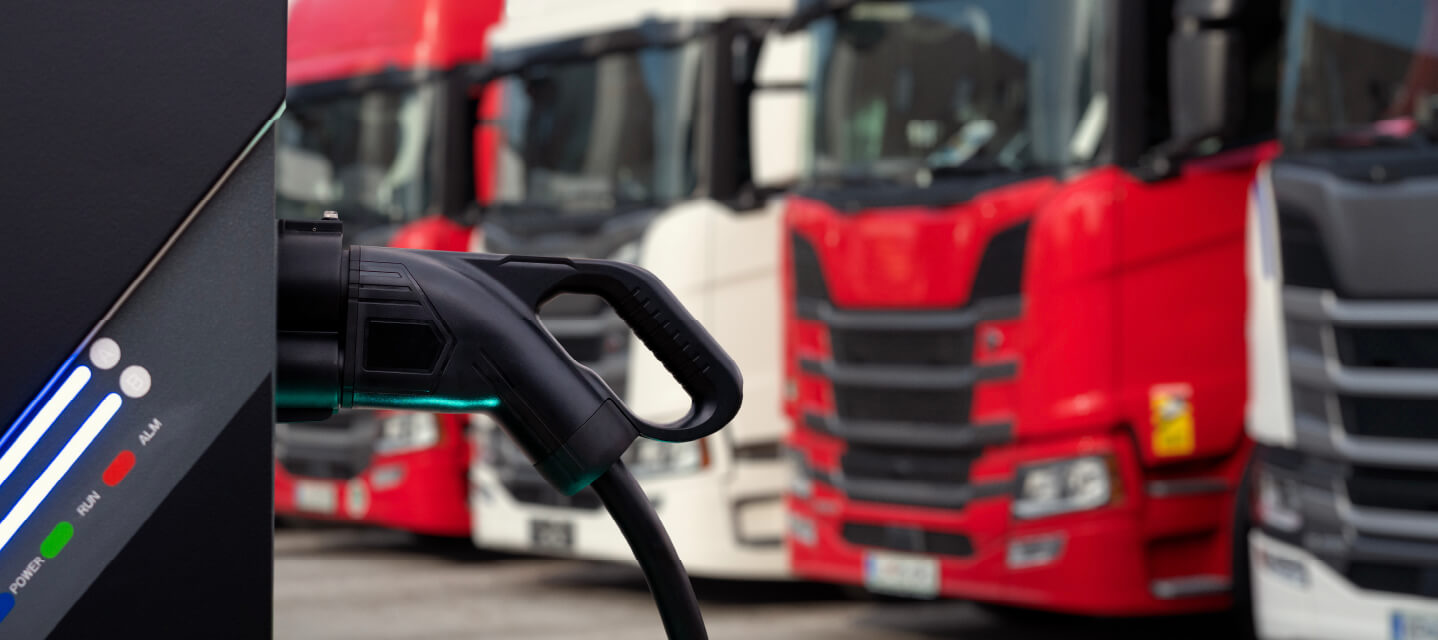The importance of real-world driving data when transitioning to EVs
One of the principal factors holding businesses back from making the transition is a lack of certainty that the higher upfront costs of EVs will be compensated by lower operating costs over the service life of the vehicles, and therefore that they will generate a solid return on investment (ROI).

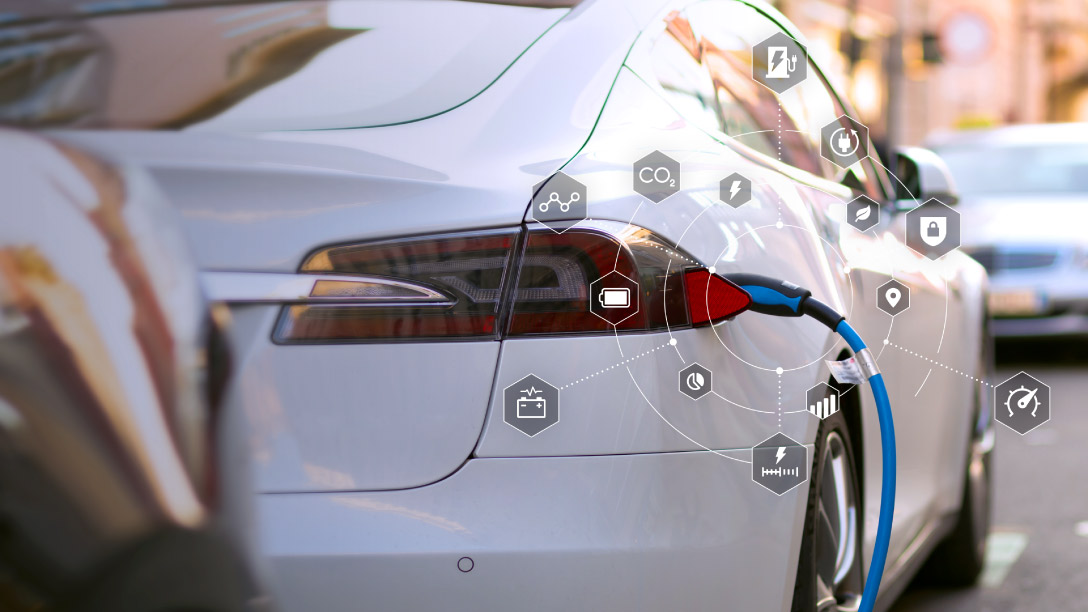
When polled, 62% of businesses plan to operate a fully electric fleet by 2026. But as of 2022, only 11% are currently using electric vehicles (EVs).
Fleet managers and drivers can also lack confidence that an EV will be able to successfully carry out the same work that their existing internal combustion engine (ICE) vehicle performs. A poorly selected EV that can’t complete the mileage ranges would become costlier still, placing additional pressure on the rest of the fleet.
The value of real-world driving data
The best way for fleet managers to convince themselves and their financial controllers of the suitability and potential ROI from electric vehicles is to collect real-world data on the current duty cycles of their existing vehicles. How many miles do they complete a day, how long do they stop for, and where, how much fuel do they use, and how do current driving styles affect fuel efficiency and therefore achievable EV range?
Geotab's Electric Vehicle Suitability Assessment (EVSA) is a free tool that evaluates the real-world driving data collected by telematics devices fitted in your fleet vehicles, and compares this against the largest dataset of real-world EV performance. In doing so, it answers these questions and more. The results ultimately provide the fleet manager with a data-driven roadmap to electrification.
Common questions that the EVSA will provide concrete answers to are:
Which EV model will be the best replacement for each current vehicle?
Range anxiety, the concern that your EV won't have sufficient battery capacity to complete its mileage requirements, is fast becoming an issue of the past. Battery technology has improved significantly in the last 24 months and several new models of electric vans have official ranges of over 200 miles with their larger batteries, while the average range for electric cars is now safely over 200 miles. Both of these ranges are comfortably greater than the average 20 miles a day that UK cars drive per day, and 67 miles that commercial vans drive per business day.
However, there are still a number of factors that can bring down the real-world range of an EV, from driving style to vehicle load, to climatic conditions. Comparing each current vehicle’s driving profile against that of real-world EV performance data, the EVSA provides a recommendation for the exact EV model that will represent the best replacement for each conventional vehicle in your fleet.
The range assurance analysis looks at the longest routes that your vehicles complete and takes charging times into account, considering if the range will still be sufficient under extreme weather conditions.
How much could we save by transitioning to an EV?
Once you know which EV model represents the best operational fit, the next question is if it will actually save you money over its service life, and if so, how much. The total cost of ownership (TCO) structure associated with EVs is slightly different to conventional vehicles due to their higher upfront costs, but in most instances this is compensated by lower ‘fuel’ costs and reduced service and maintenance requirements.
The EVSA analyses total mileage, fuel consumption and spend for each vehicle in your fleet, comparing this against the equivalent electricity costs for its recommended EV to complete the same work. It also provides a comparison for the projected maintenance and servicing costs between an EV or an ICE vehicle.
This provides a conclusive answer as to how much switching to EVs could save the fleet budget over the vehicle’s service life.
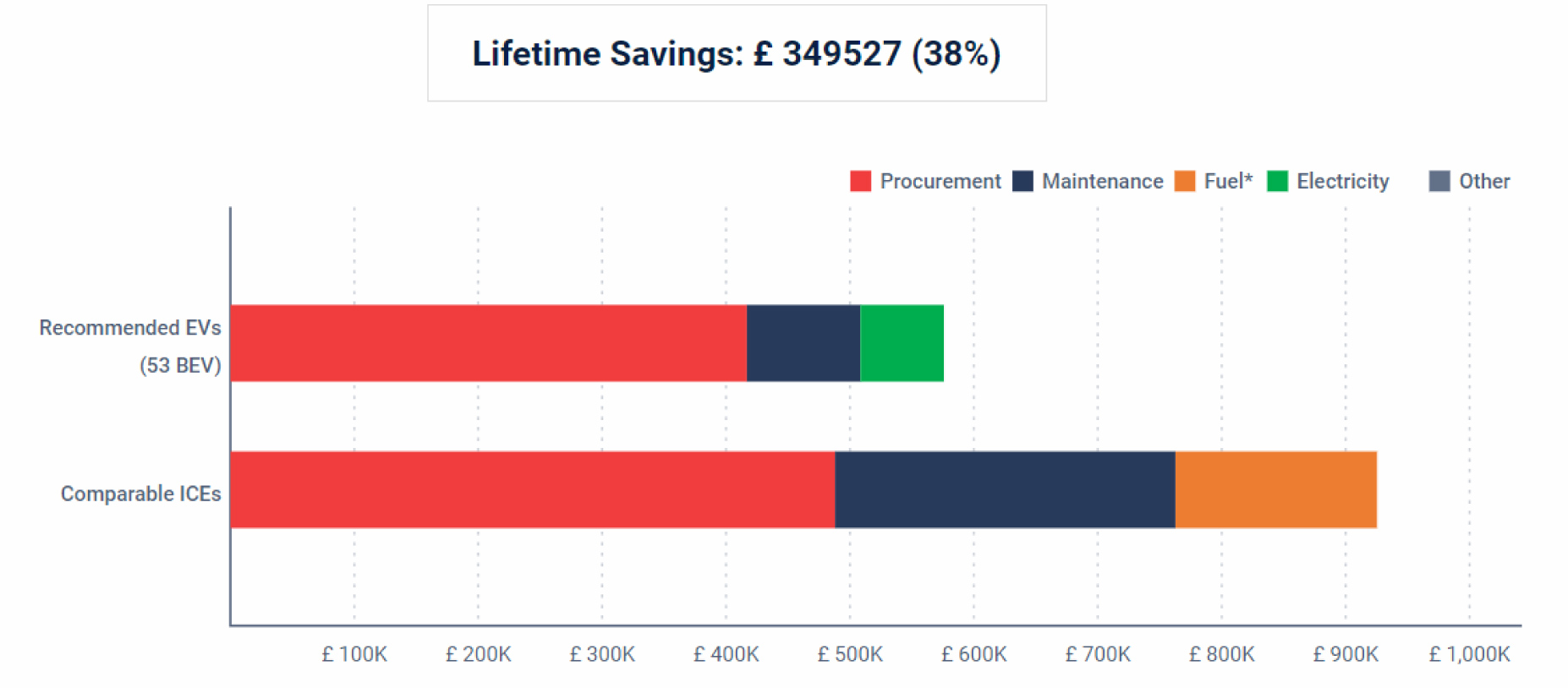
It even provides a comparison of whether the TCO would be lower by purchasing or leasing the vehicle, so that financial controllers can confidently choose the correct ownership model.
How will different driving styles affect achievable EV range?
Harsh braking, acceleration, and excess speeding can all significantly affect real-world EV range. Even an excess use of climatic controls can have an effect. The EVSA analyses how your drivers currently use their vehicles and estimates how that might affect the real mileage the EV will be able to achieve on a single charge.
Once your EVs are in place, range can be improved by monitoring driving behaviour with the help of the dashboards and reports displayed in the MyGeotab fleet management software.
How will transitioning to EVs reduce my fleet’s carbon footprint?
This is a question of growing importance for many organisations, who need to measure their current carbon footprint and quantify the scale of carbon savings they could achieve by electrifying their fleet.
Based on current usage patterns, type of fuel used, and fuel consumption, the EVSA calculates the current CO2 emissions of each vehicle in the fleet and provides an accurate estimate of the direct emissions savings as a result of replacing a petrol or diesel vehicle for an EV.
In what order should I replace my vehicles?
Once you know which vehicles in the fleet can be replaced by EVs, the EVSA then recommends the exact order in which to transition out these vehicles to maximise your organisation’s financial and environmental savings. This data-driven recommendation makes it simple for you to plan your transition programme.
Look to the future with real-world data
When making large purchasing decisions that could affect the operational capability and TCO of the fleet, all stakeholders in the organisation from fleet managers to finance, and sustainability to CEOs may wish they had a crystal ball to know how EVs will benefit them.
With Geotab’s EVSA, you can benefit from the real-world data of thousands of other fleets that have already transitioned to electric vehicles, comparing that data directly against the usage patterns of your existing vehicles. This means that even if it’s your first EV purchase, you can have confidence that it will work for you. So now there's nothing to hold you back from making the switch and greening your fleet’s future.
Find out how Geotab's EVSA could make your fleet’s transition to electric smooth and certain.
Subscribe to the Geotab Blog

Solutions Engineer, EV
Table of contents
- The value of real-world driving data
- Which EV model will be the best replacement for each current vehicle?
- How much could we save by transitioning to an EV?
- How will different driving styles affect achievable EV range?
- How will transitioning to EVs reduce my fleet’s carbon footprint?
- In what order should I replace my vehicles?
- Look to the future with real-world data
Subscribe to the Geotab Blog
Related posts
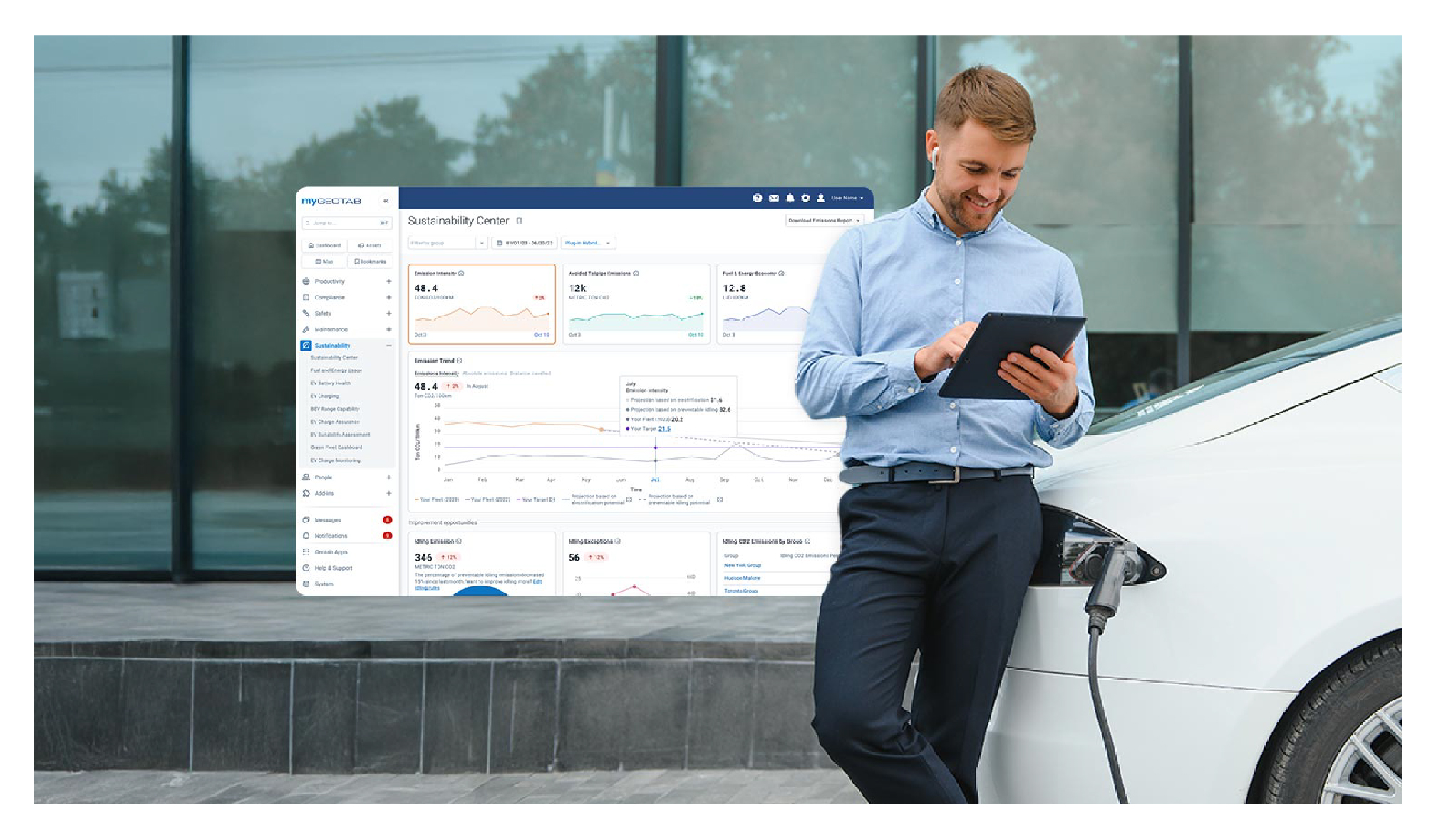
Geotab’s new fleet Sustainability Center simplifies fuel and emissions reduction
June 13, 2025
3 minute read
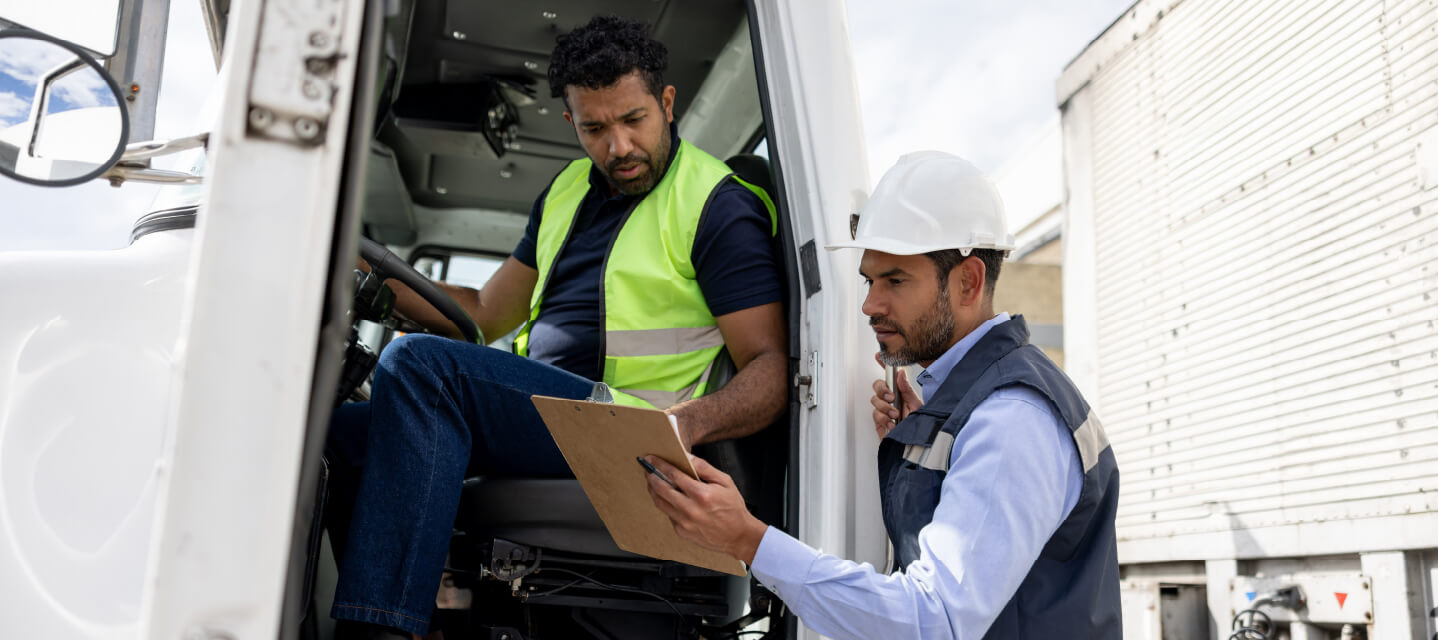
What Is fleet management? A complete guide for fleet managers
June 13, 2025
5 minute read
.png)
.jpeg)
.jpg)
Lead with Trust: How Geotab Helps Businesses Navigate CSRD Compliance
March 19, 2025
2 minute read

